Private door-to-door transfers to and from Budapest Airport (BUD)
Easy Booking. Reliable Service. Great Prices.
Never been to Budapest?
Let's see what Strikes the First-Time Travelers to Budapest!
2024-03-18 | TRAVEL GUIDE
Budapest, the capital of Hungary, is the political, administrative, industrial, and commercial center of Hungary. Called the “Queen of the Danube”, Budapest has long been a cultural focal point of the nation.
Divided by the Danube River in its remarkable natural setting, the city consists of two parts, Buda and Pest, situated on opposite sides of the river and connected by a series of bridges. So plan an agenda to explore Budapest in one week and grab that airport shuttle on time.
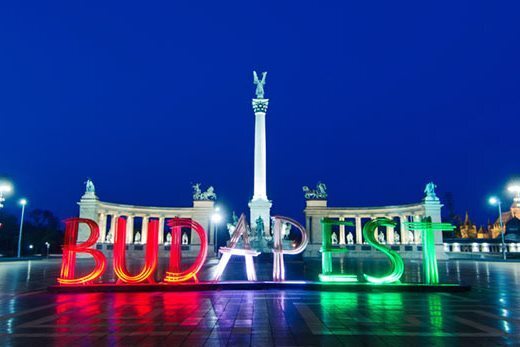
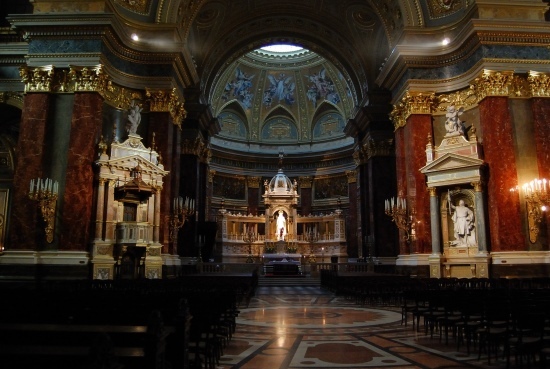
St. Stephen's Basilica
Built over the course of 50 years in the 1800s, the St. Stephen's Basilica is the largest church in Budapest.
Originally, the design was done by the architect József Hild, but its construction was overseen by the renowned Miklós Ybl, a leading architect of the time who designed the Budapest Opera House. At 96 meters high, its center dome is as tall as that of the Hungarian Parliament.
Fisherman's Bastion
Built in the late 1800s to celebrate the 1000-year anniversary of the founding of Hungary, the Fisherman's Bastion is composed of 7 towers, representing the 7 Magyar tribes that founded the nation. Sitting on the top of Castle Hill, the Bastion provides some of the most spectacular views of the Danube and the city.
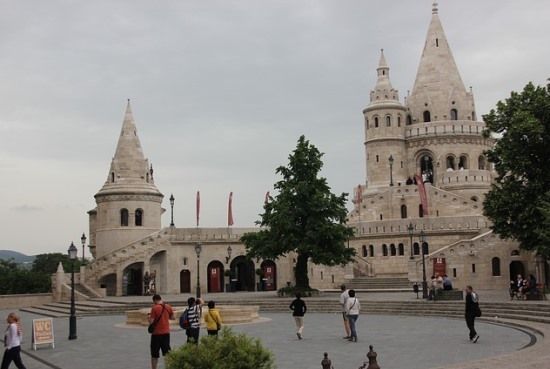
Dohány Street Synagogue
The Dohány Street Synagogue is the largest synagogue in Europe and the second largest synagogue in the world. It was constructed in the 1850s, with a style which influenced the later synagogues, most notably New York City's Central Synagogue.
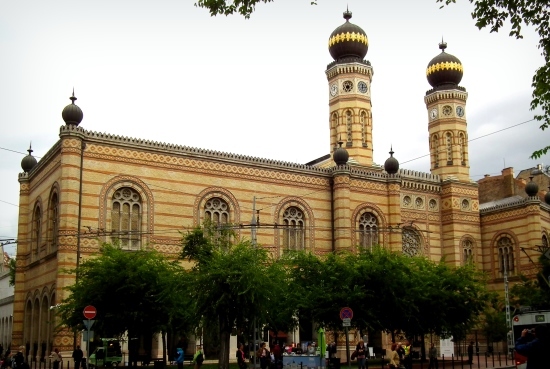
Hungarian Parliament
This House of the Nation is the third largest parliament building in the world. Finished after nearly 20 years of construction in 1902, it was built almost exclusively with Hungarian materials and is composed of 691 rooms. It also houses the Hungarian Crown Jewels, so make sure to go on a tour inside.
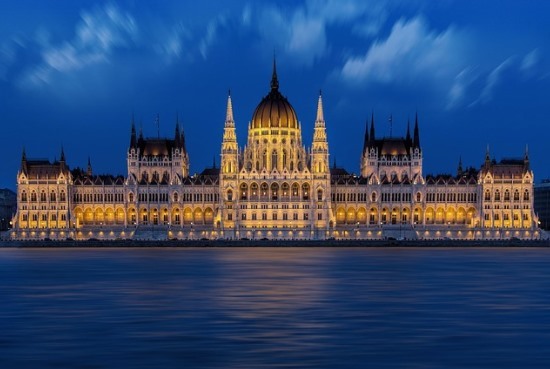
Buda Castle
The Buda Castle sits on the top of Castle Hill on the Buda side of the city. Once a site of extravagant ceremonies during the Austro-Hungarian Empire, today it houses the Budapest History Museum, the Hungarian National Gallery and the National Széchényi Library.
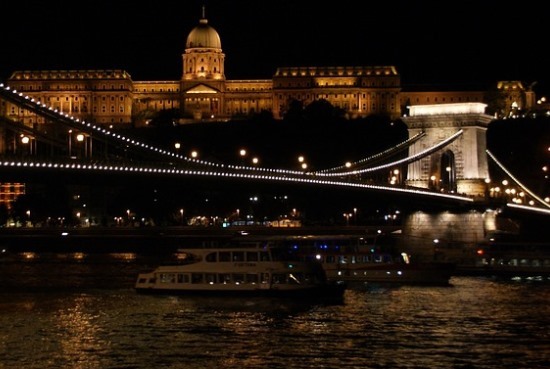
Matthias Church
Over 700 years old, the Matthias Church was the site of the coronation of Franz Joseph I of Austria and his wife Elizabeth, marking the establishment of the Austro-Hungarian Empire in 1867. The roof is tiled in ceramics from the renowned Zsolnay factory of Hungary and looks remarkable.
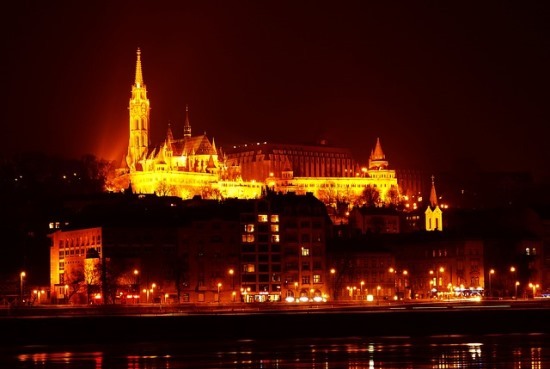
Széchenyi Bath & Spa
The Széchenyi Bath & Spa is the largest open-air medicinal bath, and one of the largest public baths in Europe. 15 of its 18 pools contain spring water believed to have healing powers. The baths are remains from the Ottoman influence, providing unique experience.
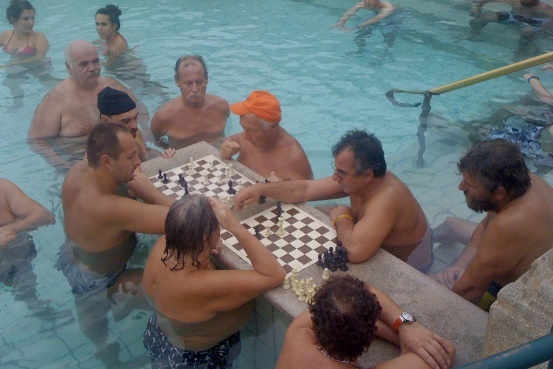
The Chain Bridge
Built in the mid-1800s, the Budapest’s Chain Bridge was once the longest suspension bridge in Europe, and the first permanent bridge to connect the Buda and Pest sides of Budapest. Today, it is known as the most beautiful bridge in the city, so go for a walk across it.
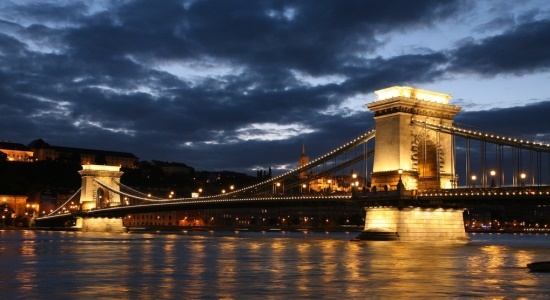
Hősök Tere (Heroes Square)
The Heroes Square is a Unesco World Heritage. Located at the end of the Andrássy Avenue, it houses the Museum of Fine Arts and the Palace of Art. Its most prominent feature is the Millennium Memorial, built in 1900 to commemorate the 1000-year anniversary of the arrival of the Magyar tribes to the region that is now Hungary.
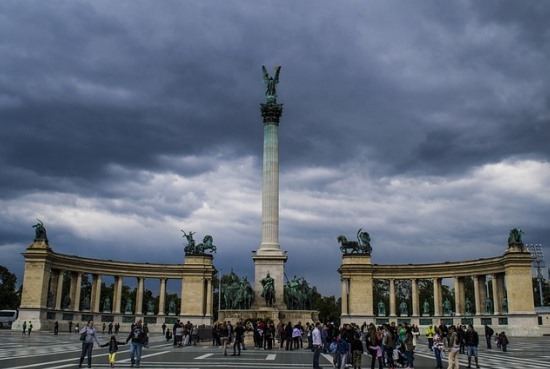
Hungarian State Opera House
Opened in the 1884, the Opera House is a remarkable sight. In fact, it was such a spectacle back then, that the crowds overran security guards to catch a glimpse of the ornate architecture. It is definitely one of those places that strike the first-time visitors.
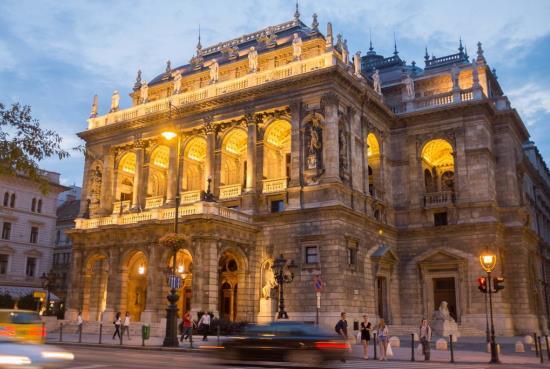
Shoes on the Danube
A creation of the Hungarian sculptor Gyula Pauer and his friend Can Togay from 2005, the Shoes on the Danube stands in memory of the Hungarian Jews who were killed by the river by the Arrow Cross Party, one of Hungary's most notorious fascist organizations, in the 1940s. Since shoes were valuable at the time, victims were ordered to remove theirs before execution.
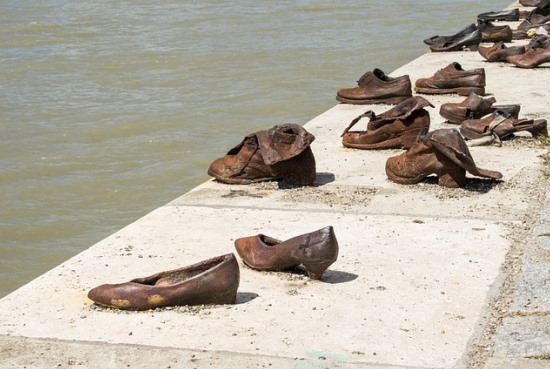
Museum of Fine Arts
Dedicated largely to exploring the visual and artistic history of Europe, the Budapest Museum of Fine Arts houses an extensive collection of European, as well as Egyptian, works, including an equestrian sculpture by Leonardo da Vinci. It also features the second largest collection of Spanish artwork outside of Spain.
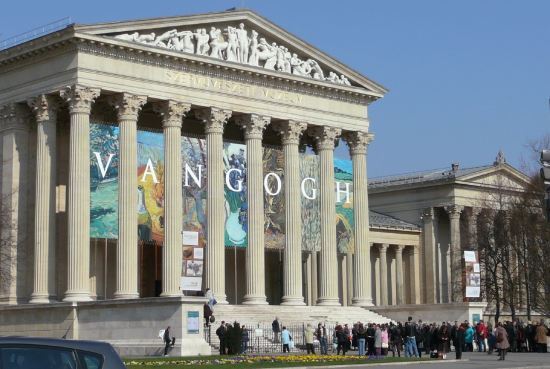
Vajdahunyad Castle
The Vajdahunyad Castle is located in Budapest's City Park and hosts various festivals and events throughout the year, along with the exhibitions of the Hungarian Agricultural Museum. During the winter it becomes an ice skating rink and in the summer and fall, the visitors can boat on the lake.
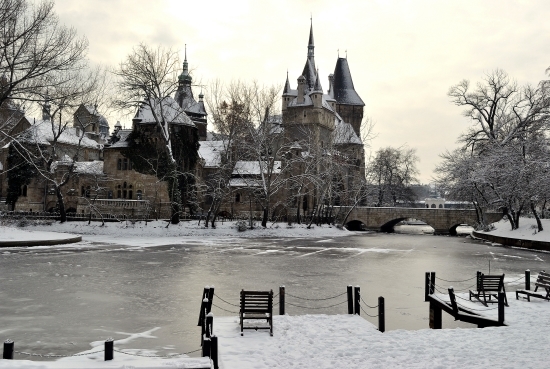
Margitsziget (Margaret Island)
Sitting in the middle of the Danube River, the Margaret Island has been a home to several churches, a harem under the Ottoman Empire and a resort for royal dignitaries. In 1908 it was declared as a public park, featuring few swimming pools, a Japanese Garden, and an Art Nouveau style water tower.
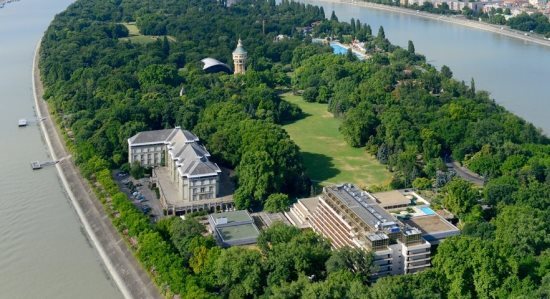
Liberty Statue
The Liberty Statue is one of the few remains of the Communist era in Hungary that has not been removed. Sitting as a soaring reminder, it is located atop Budapest's Gellért Hill, overlooking the city.
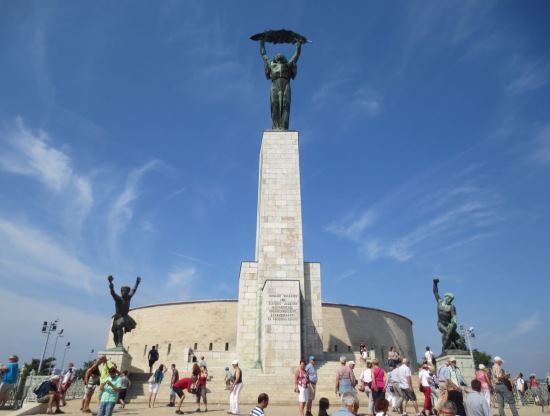
Budapest Castle Hill Funicular
The funicular was constructed in the late 19th century as a way for the workers on Budapest's Castle Hill to commute. Today, the funicular offers panoramic views for visitors to the city, for a symbolic fee.
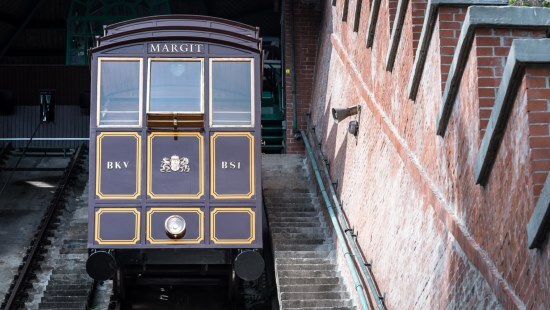
Great Market Hall
The Great Market Hall, or Central Market Hall, is the largest indoor market in Budapest. The first-time travelers flock here for a taste of a traditional (and cheap) bite to eat.
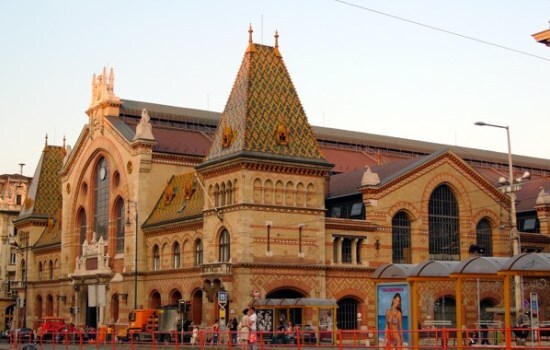
Tram (villamos)
The Budapest’s tram network is one of the largest in the world with over 96 miles of track, and a most popular source of transportation in the city. The tram No. 2 follows the curve of the Danube River, providing gorgeous views of the Buda side of the city.
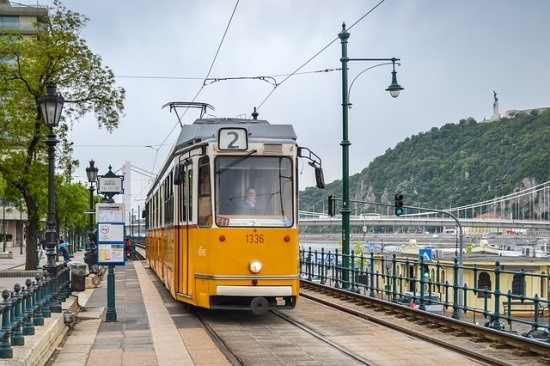
These are some of the most important places that strike the first-time travelers in Budapest, so make sure to visit them if you are visiting. And yes, combine this experience with a visit to the best Hungarian restaurants in Budapest for a truly spectacular experience. An airport minibus or airport taxi can take you around Budapest fast, but make sure to call a credible taxi company.